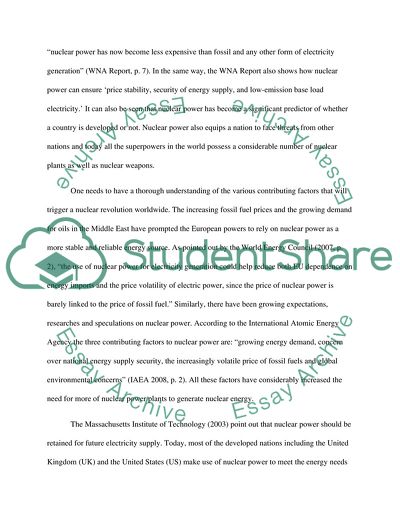Cite this document
(International Status and Prospects of Nuclear Power Assignment, n.d.)
International Status and Prospects of Nuclear Power Assignment. https://studentshare.org/environmental-studies/1795107-discuss-the-role-of-nuclear-power-in-the-modern-world
International Status and Prospects of Nuclear Power Assignment. https://studentshare.org/environmental-studies/1795107-discuss-the-role-of-nuclear-power-in-the-modern-world
(International Status and Prospects of Nuclear Power Assignment)
International Status and Prospects of Nuclear Power Assignment. https://studentshare.org/environmental-studies/1795107-discuss-the-role-of-nuclear-power-in-the-modern-world.
International Status and Prospects of Nuclear Power Assignment. https://studentshare.org/environmental-studies/1795107-discuss-the-role-of-nuclear-power-in-the-modern-world.
“International Status and Prospects of Nuclear Power Assignment”. https://studentshare.org/environmental-studies/1795107-discuss-the-role-of-nuclear-power-in-the-modern-world.


